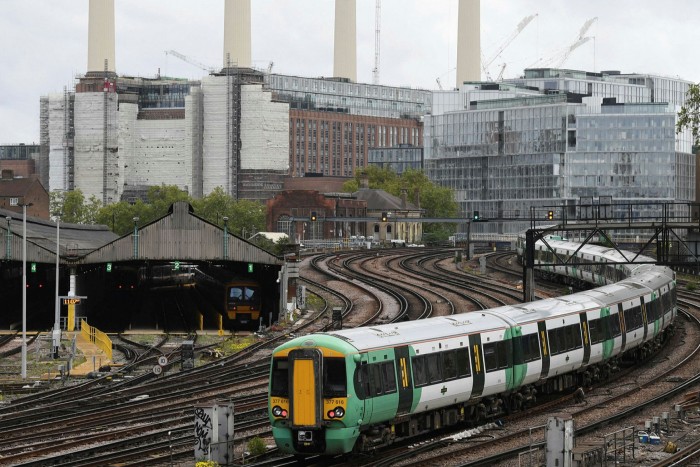Strikes will spread across the UK unless the government acts on its promise to create a high wage economy, the leader of the country’s main movement for organised labour has warned.
Frances O’Grady, general secretary of the Trades Union Congress, said that workers all over the country were supporting striking rail employees and would in some cases be holding their own ballots for “pay justice”.
The government is braced for a summer of discontent, with unions taking steps towards industrial action on behalf of workers ranging from doctors, nurses and local government staff to traffic wardens and postal workers.
Criminal barristers voted at the weekend to step up action on legal aid and plan walkouts for several days over each of the next four weeks.
The TUC would not rule out coordinating action, O’Grady said, but added: “The point is that workers are coordinating themselves, not out of any deliberate strategy but because millions are now facing low pay, insecurity and real cuts to their pay packets. So of course workers who feel they have no choice will be balloting.”
Ministers are seeking to hold public sector pay rises to as little as 2 per cent even though the Bank of England forecasts inflation will top 11 per cent by October.
Simon Clarke, chief secretary to the Treasury, told the BBC on Monday that the government wanted a “sensible” pay increase, adding that public sector workers should not expect raises in line with inflation.
On Tuesday, 40,000 Network Rail staff at 13 train operators are due to walk out over pay and redundancy disputes, with subsequent stoppages on Thursday and Saturday.

Disruption is expected on all of the UK’s major train lines, including LNER, Avanti West Coast and many commuter railways, as well as the London Underground. It is likely to persist on days between the official strikes.
Steve Montgomery, chair of the Rail Delivery Group, an industry body, said the organisation still hoped to avoid the strike. “We are obviously speaking to the trade unions today again but we need to try to work together to try to stop this.”
In an indication of the UK government’s low expectations over the rail negotiations and the prospect of other industrial action over the summer, Kwasi Kwarteng, business secretary, plans this week to scrap a legal ban on the use of temporary workers to replace striking staff.
Kwarteng is set to repeal the 1973 prohibition by approving so-called secondary legislation — laws a minister can approve because of powers delegated to them by other acts of parliament.
While rail groups have welcomed the plan to junk the 1973 law — an unfulfilled 2015 Conservative manifesto pledge — the step is only likely to ease the pressure on staff shortages in low-skilled roles such as cleaners and station staff. It would take effect in mid-July.
The rail union RMT said it would be impossible to run the network with agency workers, particularly because the greatest disruption is set to be caused by a walkout by signalling staff, who are not easily replaced.
Mick Lynch, RMT general secretary, said it would be “absolutely impossible” to use agency workers to keep the railway running.
The union warns the strike — the biggest for more than 30 years — will continue until its pay demands are met. The RMT’s members voted for a six-month strike mandate in May, leaving the possibility of more strikes in the summer and autumn.
The opposition Labour party has demanded the government hold last-ditch talks with the unions to avert strike action.
Louise Haigh, shadow transport secretary, told BBC Radio 4’s Today programme that the government had failed to set a negotiating mandate for the employers.
“Not only are they boycotting the talks, they are actually hobbling them . . . it is imperative that they step in.”
